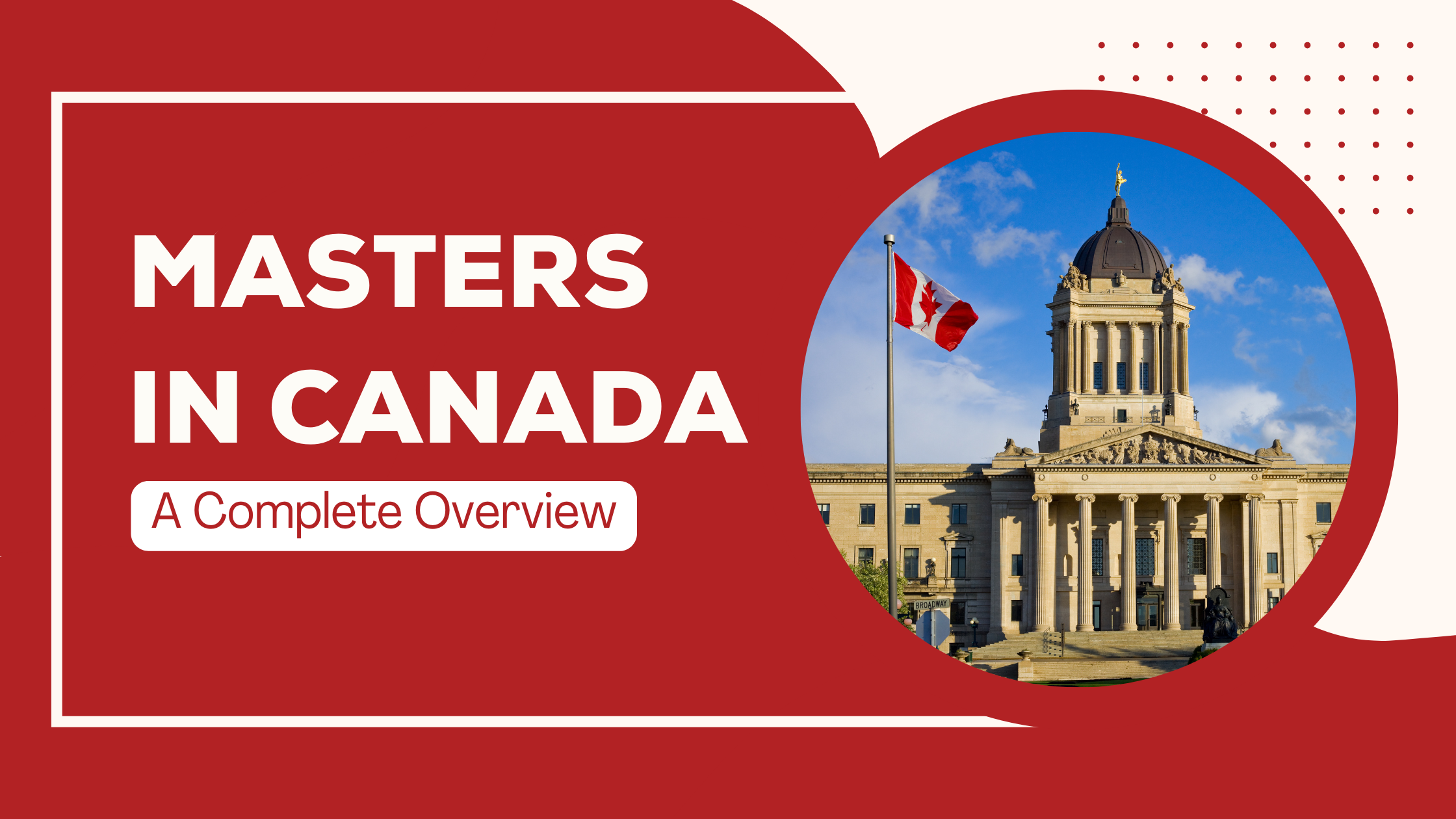Masters in Canada: A Complete Overview
Top Universities for MS in Canada
Canada is a global favorite for pursuing MS due to its strong emphasis on research, innovative education, and a multicultural environment. Renowned universities include:
- University of Toronto: Known for cutting-edge research and interdisciplinary programs.
- University of British Columbia (UBC): Offers diverse programs in science, technology, and more.
- McGill University: A leader in research-driven master’s programs.
- University of Waterloo: Famous for its focus on innovation and technology.
- University of Alberta: Known for excellence in engineering and natural sciences.
| University | QS Rank | Avg Tuition (CAD) |
|---|---|---|
| University of Toronto | 21 | $30,000/year |
| UBC | 34 | $24,000/year |
| McGill | 31 | $20,000/year |
| University of Waterloo | 112 | $25,000/year |
| University of Alberta | 118 | $19,000/year |
Top Universities for MBA in Canada
MBA programs in Canada emphasize leadership, global strategy, and practical learning, offering exceptional career opportunities:
- Rotman School of Management (University of Toronto): Renowned for its innovative curriculum and finance expertise.
- Sauder School of Business (UBC): Focuses on global business strategy and sustainability.
- Ivey Business School (Western University): Known for case-based learning.
- Desautels Faculty of Management (McGill University): Combines academic rigor with international exposure.
- Schulich School of Business (York University): Offers specialized MBA tracks in various fields.
| University | QS Rank | Avg Tuition (CAD) |
| Rotman | 41 | $71,900/year |
| Sauder | 45 | $60,000/year |
| Ivey | 57 | $83,250/year |
| Desautels | 48 | $47,000/year |
| Schulich | 55 | $52,040/year |
High-Ranked Universities in Canada Accepting 3-year Bachelor’s Degrees
Many Canadian universities accept three-year bachelor’s degrees, making them accessible to students from countries like India and Australia:
- University of Toronto
- McGill University
- University of Waterloo
- Simon Fraser University
- York University
Study Duration for a Masters in Canada
The duration of master’s programs in Canada varies depending on the course structure:
- Course-Based Programs: Typically 1-2 years.
- Thesis-Based Programs: 2-3 years, depending on research requirements.
Cost of Studying Masters in Canada
The cost of pursuing a master’s degree in Canada includes tuition fees and living expenses:
- Tuition Fees: Range from CAD 20,000 to CAD 40,000 annually.
- Living Expenses: Approximately CAD 12,000 to CAD 20,000 annually.
- Miscellaneous Costs: Books, supplies, and insurance add about CAD 2,000 annually.
Financial Aid Options
Canada offers several financial aid options to make education affordable:
- University-Specific Scholarships: Partial or full funding for eligible students.
- Government Scholarships: Includes programs like Canada Graduate Scholarships.
- Assistantships: Teaching or research positions with stipends.
- Part-Time Work Opportunities: Students can work up to 20 hours per week during term time.
Eligibility Criteria for Masters in Canada
To apply for a master’s degree in Canada, students need:
- Educational Background: Bachelor’s degree with minimum 65% or equivalent.
- English/French Proficiency: IELTS, TOEFL, or French language tests like TEF (depending on the program).
- Supporting Documents: SOP, LORs, Resume/CV, and proof of financial resources.
Exemptions for Masters in Canada
Some universities waive standard requirements:
- IELTS Exemptions: For students from English-speaking countries or prior education in English.
- Work Experience Consideration: Professional experience can strengthen applications.
Conclusion
Canada is a top choice for higher education, offering globally recognized degrees, world-class research opportunities, and a pathway to permanent residency. At Edwest Global, we simplify your study abroad journey with expert guidance on university selection, financial aid, and visa processes. Let us help you make your academic aspirations a reality in Canada.
FAQs
Q: Can I work while pursuing my master’s in Canada?
A: Yes, students can work up to 20 hours per week during studies and full-time during breaks.
Q: Are there post-study work opportunities in Canada?
A: Yes, the Post-Graduation Work Permit (PGWP) allows students to work for up to three years after graduation.
Q: What are the popular intakes in Canada?
A: The primary intakes are Fall (September) and Winter (January).
Q: Is health insurance mandatory for international students?
A: Yes, health insurance is mandatory, and costs vary by province.
Q: Are scholarships available for international students?
A: Yes, many universities and organizations offer scholarships based on merit or need.
Q: What is the average application fee for Canadian universities?
A: Application fees typically range from CAD 100 to CAD 200 per university.
Q: Can I settle in Canada after completing my master’s degree?
A: Yes, international graduates can apply for permanent residency through various immigration pathways like Express Entry.







